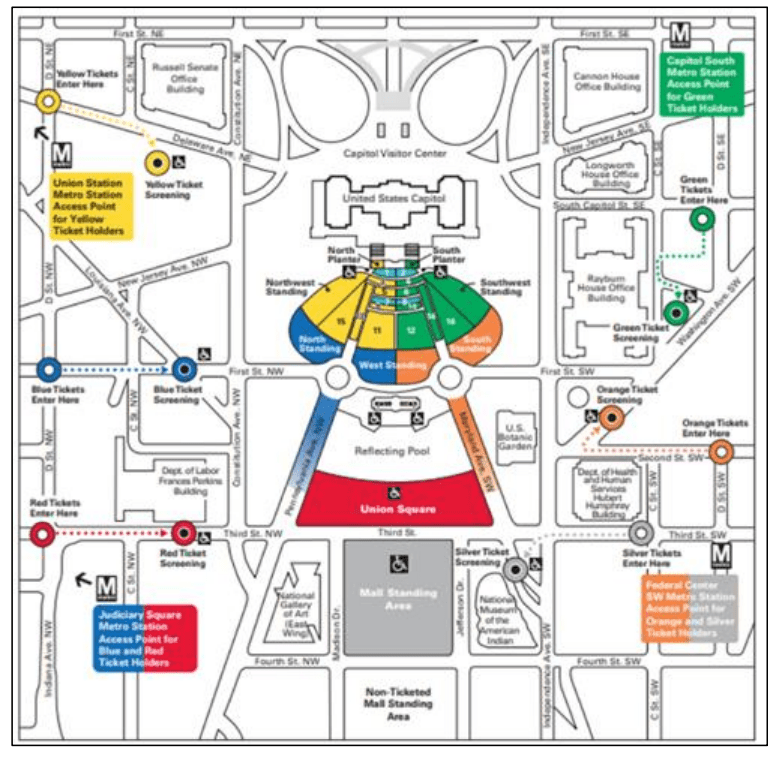The pinnacle of command lies with an agency that has a lot to prove.
It will be all hands on deck for those in the security business on Inauguration Day. That isn’t exactly novel, but this year, safety is especially high on the list of worries regarding the swearing-in of President Donald Trump for a second term on Jan. 20. Heightened security measures, such as cordoning off the perimeter of the US Capitol, are already in place, and road closures are expected. Sitting atop the security plans for the inauguration is the US Secret Service (USSS) – but this may not be the most comforting thought for those who plan to attend the event.
It’s safe to say the US Secret Service has had a very trying time the last six months or so. Two assassination attempts – one where an innocent man was gunned down, and a bullet came within inches of killing then-candidate Donald Trump – revealed serious dysfunction at the highest level of the agency. This caused a changing of the guard at the top of the Service and left many with questions about the agency’s efficacy.
To put it plainly, the Secret Service has a lot to prove. Should they perform admirably, they will be heralded, but God forbid they don’t. Then, it will be disastrous for the reputation of the USSS as well as the potential victim (or victims) of an attack. Since the Service is in charge, it will have to coordinate the US Capitol Police and the Metropolitan Police while working in tandem with the FBI Washington Field Office to ensure all their bases are covered for the ceremony, which thousands are expected to attend.

“Inaugural Ceremonies-Map and
Guidance,” press release, January 12, 2017, https://www.uscp.gov/ media-center/press-releases/inaugural-ceremonies-map-andguidelines.
They are likely to be a tired bunch due to the untimely security needs for the recent state funeral of Jimmy Carter as well as the tight security provided for this year’s electoral count on Jan. 6. So far, it’s two down, and one big one to go. “This has never happened before,” said the USSS special agent in charge of the DC field office, Matt McCool, speaking to the AP about the many events coming at a rapid clip. “But we’re flexible and adaptable. … We’re going to be prepared.”
But are those who plan to attend feeling the security vibe? One avid Liberty Nation reader wondered whether such pressure alongside the still bitter political climate would be enough reason to hold the Inaugural indoor this year. A controlled environment does seem like a more prudent approach where security measures would have the best chance of success. As well, there are public concerns regarding a drone attack. Ridiculous? LN National Security Correspondent Dave Patterson doesn’t think so:
“Not ridiculous. It is a concern. I suspect there will be a lot of electronic countermeasures in play. The events cover a large area and are exposed from all angles. Modern commercially available drones for under $1,000 have around 30 minutes of flight time. The distance they can fly and still receive the signal from a controller can be up to about five miles. The major threat would be from swarms of drones carrying explosive or lethal substances that would overwhelm ground defense systems.”
Not a very reassuring thought – one can only hope the Secret Service learned its lesson about protecting the high ground. In the case of drones, it is very high ground. Such a conspicuous event would have to involve some sort of military countermeasures, which, for obvious reasons, are not being discussed publicly.
Inauguration: Go Indoor or Go Home
A case cannot be made that an indoor inauguration is unprecedented. In modern times, a couple of presidents have been inaugurated inside for a variety of reasons, primarily due to inclement weather and to move the Inauguration so it would not fall on a Sunday. The no-Sunday rule is said to be in place because courts and other national offices are closed on the first day of the week.
In 1909, William Howard Taft took the oath of office inside the Senate chamber due to a blizzard. Ronald Reagan’s second swearing-in was also officially held indoors because of freezing temperatures and because Jan. 20 was a Sunday. So, the official oath of office was taken inside, and a public ceremony followed on Jan. 21 inside the US Capitol Rotunda. A private ceremony was held in the East Room of the White House in 1957 for Dwight D. Eisenhower, and a public ceremony took place outside the next day.
Tradition is important when it comes to such meaningful events as turning over the executive branch to the next elected president of the United States. However, safety concerns should take precedence, and one would hope that the US Secret Service either has all its ducks in a row or is willing to move the festivities inside should there be an active threat or even if they believe they cannot keep those in attendance safe.
Liberty Nation does not endorse candidates, campaigns, or legislation, and this presentation is no endorsement.

